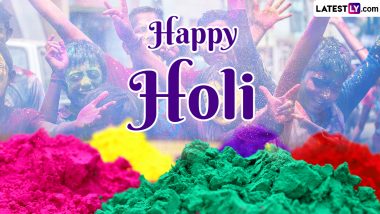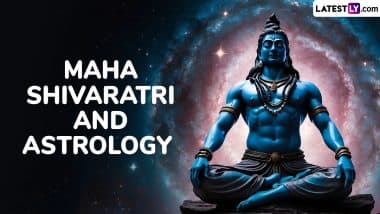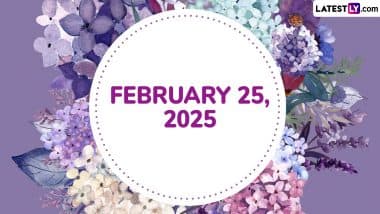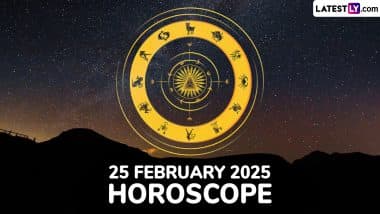Happy Holi 2023! Holi is one of the most popular festivals celebrated in India by the Hindu community that celebrates the eternal and divine love of Radha and Lord Krishna. Holi 2023 celebrations will begin with Holika Dahan on March 6 and Rangwali Holi, Dhulandi or Dhuleti on March 7. Some parts of India will also observe the 'Festival of Colours' on March 8, Wednesday. The festival has great significance in Hinduism as it signifies the triumph of good over evil and commemorates the victory of Lord Vishnu as Narasimha Narayana over Hiranyakashipu. People mark this day with great fanfare and enthusiasm. Holi celebrations are also known as the Festival of Colours, the Festival of Spring, and the Festival of Love. It is predominantly celebrated in the Indian subcontinent but has also spread to other regions of Asia and parts of the Western world. As we celebrate Holi 2023, let’s know more about the Holi 2023 Date, Holi 2023 Timings, Holi 2023 Shubh Mahurat and the significance of this festival. Happy Holi 2023 Wishes & Dhulivandan Messages, Holi Hai Greetings, Facebook Status, Colourful Photos, Images & GIFs To Celebrate the Festival of Colours.
Holi 2023 Date
Holi 2023 celebrations will begin on March 6. Holika Dahan, also known as Choti Holi, will be celebrated on March 6, and Rangwali Holi or Dhulandi or Dhuleti will be celebrated on March 7. However, some regions of the country will be observing the festival of Holi on March 8. 'Kab Hai Holi' Funny Memes Go Viral on Twitter as Netizens Remain Confused Over Holi 2023 Date To Be 7th or 8th March!
Holi 2023 Shubh Muhurat
- The Purnima Tithi Begins on March 6, 2023, at 02.47 pm
- The Purnima Tithi will end on March 7, 2023, at 04:39 pm
History of Holi
Holi is an ancient festival with great cultural and religious significance in India. The festival is so old that it is mentioned in the Puranas, Dasakumara Charita, and by the poet Kalidasa during the 4th-century reign of Chandragupta II. The celebration of Holi is also mentioned in the 7th-century Sanskrit drama Ratnavali. As per historical records, several old editions of the Oxford English Dictionary mention it, but with varying, phonetically derived spellings. The festival is of great significance in the Braj region of North India, which includes Mathura, Vrindavan, Nandgaon, Uttar Pradesh, and Barsana, the regions that are traditionally associated with Lord Krishna. Hindus also observe the festival in Nepal, Bangladesh, and Pakistan and in countries with large Indian subcontinent diaspora populations. Holika Dahan 2023 Dos and Don'ts for Good Luck: From Newly-Wed Couple Rituals to Holika Puja Samagri, Ways To Bring In Happiness Before Holi.
History and Significance of the Festival of Colours:
Significance of Holi
Holi also marks the start of spring, an occasion for people to enjoy the changing seasons and make new friends. The festival of Holi also has a cultural significance in Hinduism. It is the festive day to end and rid oneself of past errors, end conflicts, and forget and forgive. On this day, people pay or forgive debts, as well as deal anew with those in their lives. The festival of Holi celebrates the arrival of summer in India and the end of winter, the blossoming of love. For many, it is a festive day to meet others, play and laugh, forget and forgive, and repair broken relationships. It is also an invocation for a good spring harvest season.
(The above story first appeared on LatestLY on Mar 06, 2023 07:00 AM IST. For more news and updates on politics, world, sports, entertainment and lifestyle, log on to our website latestly.com).













 Quickly
Quickly





















